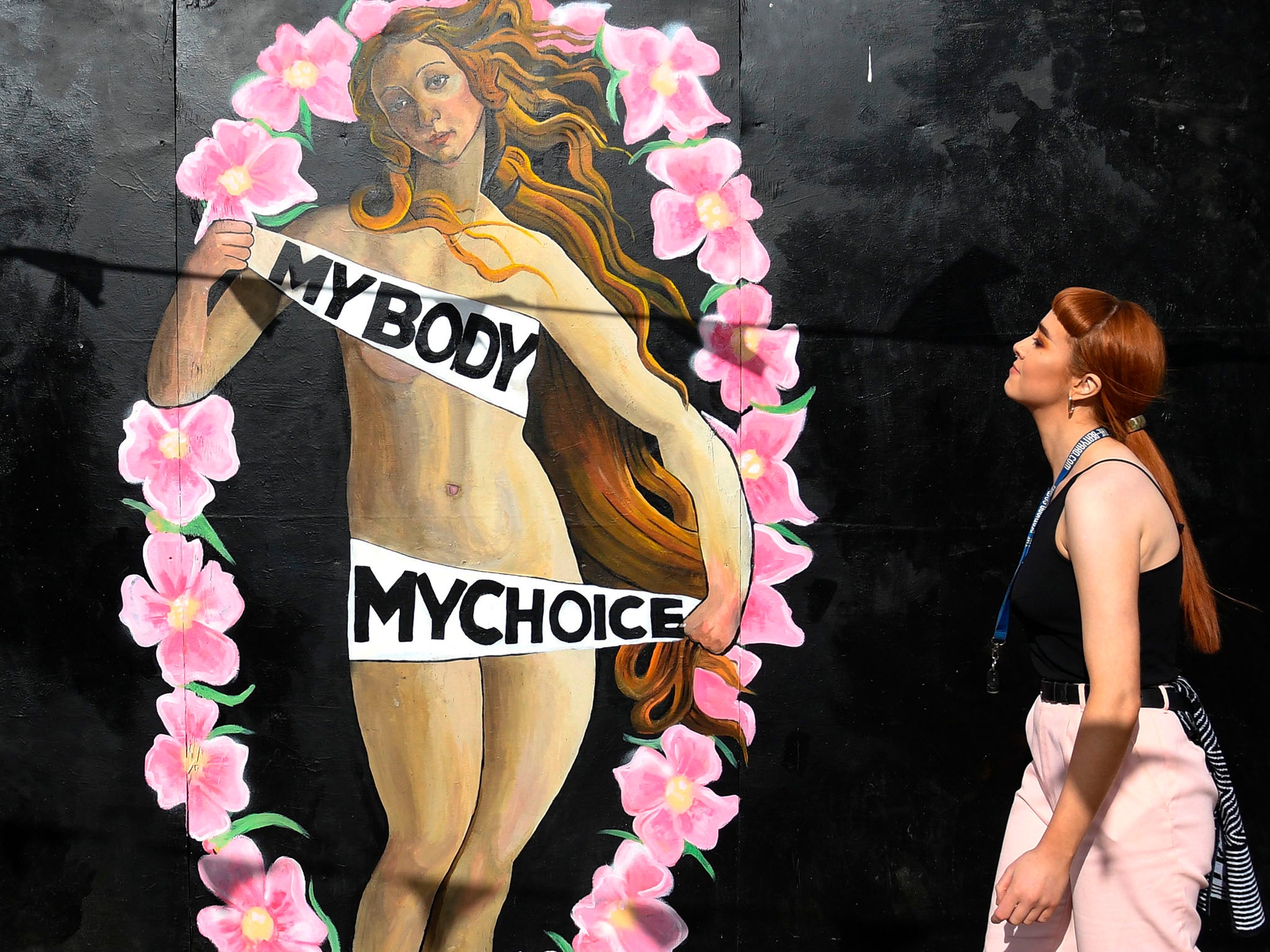Nearly two years on, Ireland’s historic abortion law is still far from perfect
Despite a monumental pro-choice victory in May 2018, unnecessary restrictions are still preventing many people from accessing vital services, says Sydney Calkin

Your support helps us to tell the story
From reproductive rights to climate change to Big Tech, The Independent is on the ground when the story is developing. Whether it's investigating the financials of Elon Musk's pro-Trump PAC or producing our latest documentary, 'The A Word', which shines a light on the American women fighting for reproductive rights, we know how important it is to parse out the facts from the messaging.
At such a critical moment in US history, we need reporters on the ground. Your donation allows us to keep sending journalists to speak to both sides of the story.
The Independent is trusted by Americans across the entire political spectrum. And unlike many other quality news outlets, we choose not to lock Americans out of our reporting and analysis with paywalls. We believe quality journalism should be available to everyone, paid for by those who can afford it.
Your support makes all the difference.In May 2018, voters in Ireland chose to legalise abortion in a historic referendum. Since 1983, the eighth amendment had imposed a near-total abortion ban and greatly restricted maternity care, by giving a pregnant person and a foetus equal legal status. Voters elected – by two to one – to remove this amendment. In January 2019, Ireland opened its new abortion services, which were hastily passed into law in the months after the referendum.
In so many ways, Ireland’s new abortion law is a progressive one. But major limitations have been built into the law: the resulting abortion service still has serious barriers for some people seeking abortions in Ireland. In our new book After Repeal: Rethinking Global Abortion Politics, my co-authors and I argue that these limitations must be considered when looking to the future of abortion access, both in Ireland and around the world.
The achievements of the new Irish law are clear: it offers a free, safe and legal abortion for most people who require it. It allows abortion on request to 12 weeks and beyond 12 weeks in a few, very limited circumstances. It is a GP-led service, with additional services available at sexual and reproductive health clinics. Abortion is now provided by more than 300 GPs and 10 out of 19 maternity hospitals in the country.
This represents a remarkable transformation in Ireland, where a few years ago life-saving abortion was the only kind of termination available. As recently as 2010, at least 12 women left Ireland every day to seek abortions in English clinics.
Delays and misinformation
But the new Irish law also has major restrictions built in that impose substantial barriers on abortion seekers.
For example, those who seek abortions must observe a three-day waiting period after requesting an abortion and having the gestational age of the pregnancy certified by a doctor. There is no exception in the law for someone who crosses the 12-week limit during this waiting period, or who passes this limit while awaiting further tests ordered by a doctor.
For rural women who have to travel long distances to see a doctor, this waiting period necessitates multiple visits to the doctor and is especially onerous. Mandatory pre-abortion waiting periods are medically unnecessary and have the effect of delaying access to care. Nonetheless, such a waiting period was advocated by the government as early as March 2018, apparently to ensure that adequate “restrictions” were in place.

In 2019, the Abortion Support Network heard from 25 people in Ireland who were turned away from the abortion service at fewer than three days past the legal limit. Without the mandatory three day waiting period, those 25 people would have qualified for a free, legal and local abortion.
In addition, although the new law fortunately removes criminal penalties for the person obtaining an abortion, it maintains them for doctors or anyone else who helps them get an abortion outside the terms of the law. Activists have noted how this create a “chilling effect” on doctors’ interpretation of the new abortion law: they practice under the fear of potential criminalisation and therefore take a cautious approach, resulting in delays and misinformation for patients.
The procedures for accessing abortion after 12 weeks in the case of serious foetal abnormality also impose unworkable restrictions on doctors. This can result in the denial of abortion for women in serious circumstances.
After the 12-week limit passes, someone who wishes to terminate a pregnancy with serious foetal abnormality can only do so if two doctors agree that the diagnosis means the foetus is likely to die before or within 28 days of birth. The law imposes rigid cut-off points on subjective diagnoses, in practice creating further incentives for doctors to err on the side of conservatism and forcing women with non-viable pregnancies to travel abroad. The practical effects of this restriction were immediately visible in January 2019 when a woman was denied abortion on these grounds at Coombe Hospital, Dublin.
The new Irish law is especially burdensome for poor women, migrant women, asylum seekers, Irish travellers, and other marginalised groups who already experience barriers on their mobility and access to medical care. Such women might struggle to afford to travel for multiple clinic visits. And migrants in Ireland who miss the 12-week legal limit will face additional delays and mounting expenses to travel abroad for abortion because they are required to obtain a travel visa for England or the Netherlands.

Broader lessons
And so while the introduction of abortion provision in Ireland is to be celebrated, more needs to be done to expand services and remove barriers. There are also many lessons for those campaigning for access to abortion elsewhere in the world.
Abortion laws, by their very nature, restrict access and determine who cannot access care. In this way, they impose harm upon all people who seek abortion. In more practical terms, this means we should decriminalise and design abortion provision by starting with the most marginalised in our society. What kind of barriers do they face: to transport, to visas, to health systems, to systems of support?
A system designed by thinking about those least able to access care would certainly result in a system that decriminalised abortion and centred on the autonomy of pregnant people, rather than one that instituted requirements for multiple visits and points of medical control over decision making. Ireland’s abortion reform shows us the power of pro-choice activism to transform the political status quo. But its resulting law also shows us the perils of an abortion law that allows access for some while codifying restrictions on others.
Sydney Calkin is a lecturer in geography at the Queen Mary University of London. This article first appeared in The Conversation
Join our commenting forum
Join thought-provoking conversations, follow other Independent readers and see their replies
Comments